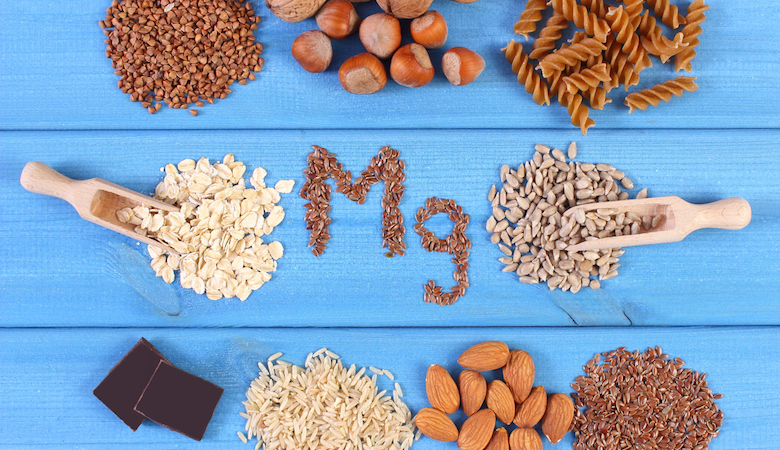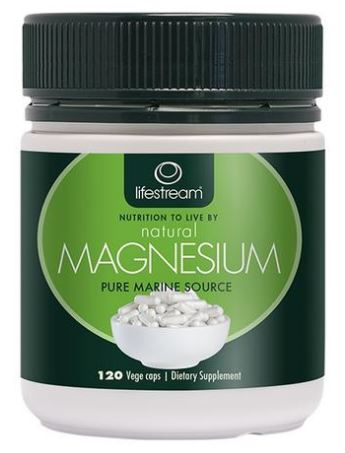75 per cent of women suffer from PMS symptoms at some point in their life, including headaches, cramps, irritability and weight gain. Nutritional director Rick Hay reveals the PMS fix you need to know about – magnesium
Do you suffer from breast tenderness? Do frequent cramps have you reaching for a hot water bottle? Has insomnia made you irritable? Are you putting on weight due to cravings? Are headaches, anxiety and a loss of libido disrupting your life?
Women will be able to answer yes to at least three of these questions.
‘Premenstrual syndrome’ known in short as PMS, is a collection of symptoms that effect around 75 percent of menstruating women.
PMS occurs during the ‘luteal phase’ of the menstrual cycle, that’s two weeks between ovulation and the first day of bleeding.
PMS, is a collection of symptoms that effect around 75 percent of menstruating women.
According to PubMed Health, during this time, some women feel a wide range of physical discomforts, such as abdominal pain, abdominal cramping, back ache, headaches, bloating, weight gain, breast tenderness, possible sleeping issues and digestive discomfort.

Some women even report feelings of psychological distress, such as, anxiety, sadness, exhaustion, irritability and low self-esteem.
These symptoms aren’t the same for all women, but many of us experience a few or combination of them during this ‘luteal phase’.
Around one in 20 women, experience even worse symptoms such as depression and anger. This condition is called premenstrual dysphoric disorder (PMDD). This condition is now included in the Diagnostic and Statistical Manual of Mental Disorders, it’s a very extreme form of PMS.
Healthista have some good news. Nutritional director Rick Hay reveals the PMS fix you need to know about – it’s magnesium.
The proven PMS fix – magnesium
If PMS is causing you serious discomfort and upset then good news ladies, there is one mineral that can help with many of the common symptoms.
‘If you suffer with PMS try taking magnesium daily. This will relieve stress levels and anxiety as well as help with headaches and muscle cramping,’ says Hay.
Magnesium is an essential mineral which plays a crucial role in more than 300 different enzymatic reactions in the body each day, with research finding it can help achieve a restful night’s sleep, reduce the symptoms of restless leg syndrome, chronic pain, tiredness, mood swings and migraines.

According to the British Nutrition Foundation, one in five women aged 19-34 and more than half of all teenage girls – and 53 per cent of all women – have intakes below the Lower Reference Nutrient Intake (LRNI) for magnesium.
Studies have shown that women taking 400mg of magnesium daily, show reduced nervous tension, breast pain, weight gain, sugar cravings, dizziness and headaches associated with PMS.
If you find one of your main symptoms is exhaustion, then magnesium is certainly the mineral that you could be lacking. It increases a chemical neurotransmitter in the brain called GABA (gamma-Aminobutyric acid), which encourages relaxation as well as sleep. Low GABA levels in the body can make it difficult to relax.
Hay explains that magnesium promotes good sleep by helping us unwind and it’s an important factor in how our body manages its sleep cycle.

Indeed, a 2012 study found that 500mg magnesium taken for eight weeks before bed had a positive improvement on insomnia levels.
‘Magnesium doesn’t just help with exhaustion though, it helps with normal psychological function too, which basically means it can help to stabilise your mood,’ says Hay.
Researchers in 2017 published a study in the journal PLoS One that found adults who received 248 mg magnesium a day for six weeks saw a significant improvement in their levels of depression and anxiety.
Good sources of magnesium include leafy greens, seeds, almonds, cashews and peanuts, spinach, brown rice and black beans along with edamame. If you’re a trendy avocado on toast fan – avocados and whole wheat are rich in magnesium.
If you find you are struggling to get your magnesium intake through food alone, try supplementing with magnesium.
Lifestream Natural Magnesium is a naturally derived marine source extracted from seawater which naturally contains magnesium salts.
It is tasteless and provides 350mg of magnesium in a 1g (1/3 teaspoon) dose (take once or twice daily in a little water or juice).
More Healthista Content:
How to get healthy cholesterol levels
4 CBD benefits proven by science
3 healthy recipes we love from Gemma Atkinson’s new cookbook
9 foods that could help prevent cancer
Like this article? Sign up to our newsletter to get more articles like this delivered straight to your inbox.



















































